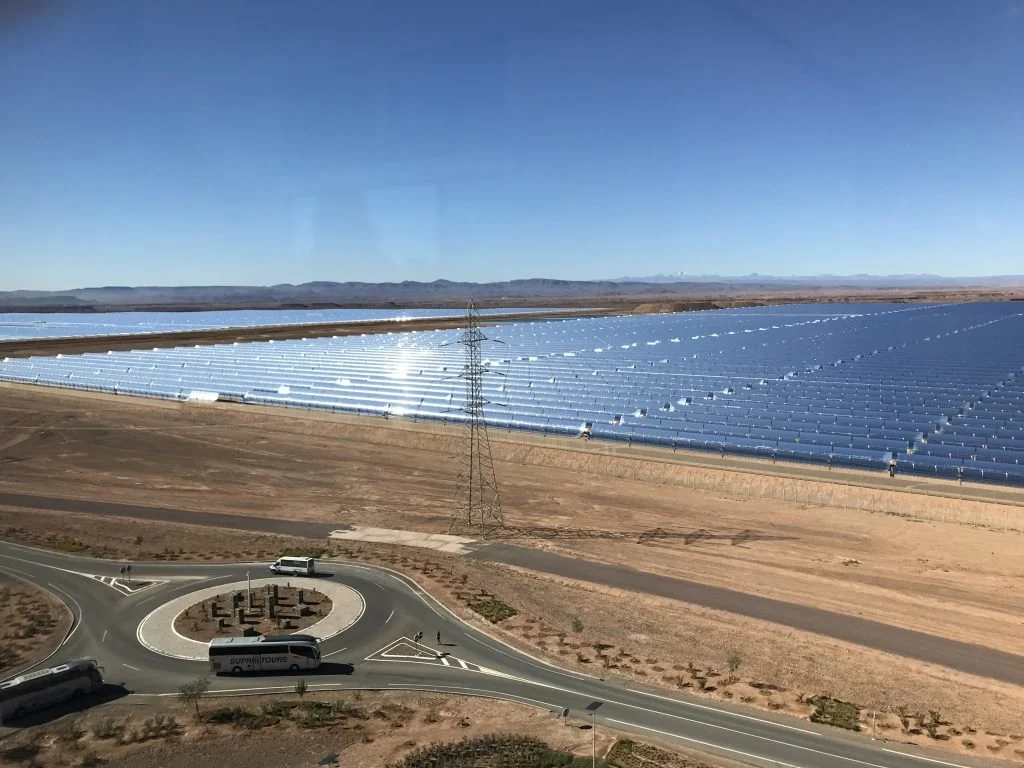Spotlight on Gulf-Africa Investment Ties
2023 has emerged as a blockbuster year for the United Arab Emirates (UAE) and its outreach with emerging markets – and Africa features prominently in these efforts.
Over the summer, the country made headlines by joining the BRICS emerging market group, signalling its eagerness to tap into a broader spectrum of global markets, diversify its partnerships, and broaden its trade and investment portfolio. In September, the country reinforced its commitment to Africa's green energy transformation, with Emirati investors pledging $4.5 billion for clean energy initiatives across the continent at the inaugural Africa Climate Summit. And next month, the country will of course host the COP28 climate talks.
While much has been said about the latter — including the irony of an oil-rich country playing host to the most important annual climate conference — the Emirati government says it is committed to both decarbonisation and seeking fresh avenues for capitalising on its oil revenue, and Africa has much to gain from both. The conference also coincides with a broader uptick in trade and investment ties between the UAE, the wider Gulf region, and Africa. This upward trajectory has been driven by a confluence of factors, including the ramifications of the COVID-19 pandemic, mounting concerns over food supply, and evolving regional geopolitical dynamics, and it looks like it is here to stay. This Insights explores UAE- and broader Gulf-Africa commercial ties, examining key sectors of interest and forecasting future trends.
A New Era for Gulf-Africa Investment Relations
Historically, Gulf-Africa cooperation had predominantly revolved around short-term, one-sided economic interests. However, recent global dynamics, spurred by the impacts of the COVID-19 pandemic, mounting concerns over food security, and the ever-evolving landscape of regional geopolitics, have ushered in a new era for this relationship – elevating it to a more strategically important and mutually advantageous partnership. Notably, except for Saudi Arabia, all the member states of the Gulf Cooperation Council (GCC) have entered bilateral investment treaties with African countries, thereby fortifying economic bonds.
The UAE has emerged as a pivotal actor, playing a central role in shaping the new dynamics. Over the span of the last decade, making substantial investments in sub-Saharan Africa – including over $1.2 billion between 2016 and 2021 alone.
The significance of this pivot towards Africa cannot be overstated. It holds the potential to drive economic growth, engender job opportunities, and fuel infrastructural development on the continent. Simultaneously, it stands to benefit the Gulf states by diversifying their investment portfolios and providing access to Africa’s vast resources, youthful workforce, and dynamic markets.
Key Sectors
Gulf-Africa trade and investment ties have found fertile ground in a few core sectors, including agriculture, energy and infrastructure, aviation, and telecommunications.
Agriculture: Gulf states, keenly aware of food supply risks, have directed substantial investments into Africa's agriculture sector. Africa's expanse of arable land holds the potential to double or even triple its output of cereals and grains, presenting a valuable asset for Gulf countries' food security initiatives.
Energy and Infrastructure: Africa's escalating energy demands and infrastructure requirements have emerged as a promising arena for investment. Gulf companies have already ventured into renewable energy projects, particularly in solar and wind energy, with success. The UAE, in particular, boasts extensive experience in developing green energy and industrial projects, including some of the world's largest solar parks, positioning the country as a key contributor to Africa's ongoing energy transition.
Aviation: Investments in African airlines and aviation infrastructure are experiencing a notable upswing. The UAE's active involvement in African aviation, exemplified by its partnerships with RwandAir and the Bugesera International Airport, underscores this evolving trend. Moreover, recent agreements, such as the one with Nigeria facilitating the resumption of operations by Emirates and Etihad Airlines after a hiatus due to a financial dispute, further underscore the importance of aviation to this relationship.
Telecommunications: Prominent GCC telecom giants like Etisalat and Qtel have extended their operational footprint into Africa. This strategic expansion is contributing to enhanced connectivity and communication services, thus fostering improved digital infrastructure and access across the continent.
Where are we headed?
As Gulf nations continue to diversify their economies away from hydrocarbons and Africa's appeal grows, the investment relationship between the two regions is likely to expand further. Africa, with its vast resources, young population, and increasing demand for infrastructure, presents a wealth of opportunities for Gulf investors.
The UAE's $4.5 billion pledge to support clean energy projects in Africa underscores its commitment to this evolving partnership, and its broader desire to showcase global leadership on climate finance in the runup to COP28.

